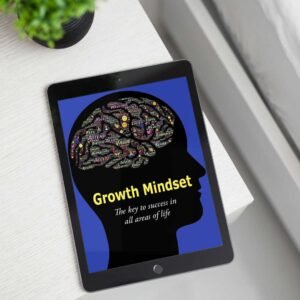In 2024, the decision between buying a home or renting continues to be a pivotal choice for many individuals and families across the globe, particularly in Ireland, the USA, and the UK.
This article delves into the economic analysis of both options, considering market conditions, financial implications, and lifestyle choices to help guide this significant decision.

Market Overview
Ireland:
Housing Market: Ireland has seen a stabilization in property prices with a steady annual growth rate of about 3%. However, the rental market has become increasingly competitive, with average rents rising by 8.5% over the past year.
Economic Factors: Interest rates are expected to decrease, making borrowing cheaper. This scenario could lean towards buying, but the initial down payment and rising property taxes might deter some.
USA:
Housing Market: The U.S. housing market shows signs of cooling from the frenetic pace of previous years, with home prices still high but with an increase in inventory suggesting a buyer’s market might be on the horizon.
Economic Factors: Mortgage rates have begun to trend downward from their peaks, potentially making buying more feasible. However, the cost of homeownership remains high due to additional costs like insurance and maintenance.
UK:
Housing Market: The UK has experienced a slight decline in house prices for the first time in decades, coupled with significant rent increases, particularly in urban areas like London.
Economic Factors: Like Ireland, the UK anticipates lower interest rates, but the cost of buying includes substantial stamp duty and maintenance, making the initial investment considerable.

Financial Considerations
Initial Investment:
Buying: Requires a significant down payment (typically 10-20% in these regions), closing costs, and potentially higher monthly mortgage payments compared to rent in some areas. However, buying allows you to build equity.
Renting: Usually involves a security deposit and possibly first and last month’s rent. This lower entry cost makes renting attractive for those without substantial savings.
Monthly Costs: Buying: Includes mortgage payments, property taxes, insurance, maintenance, and potential HOA fees. While mortgage payments might be fixed, other costs can fluctuate.
Renting: Offers predictability with rent payments, though landlords can increase rent annually. Renters insurance and utilities might add to costs but are generally less than a homeowner’s total monthly outlay.
Tax Benefits:
Homeowners can benefit from tax deductions on mortgage interest and property taxes in the USA and UK, less so in Ireland. This can make the cost of owning somewhat more palatable over time.
Long-Term Financial Growth:
Buying: Over time, property can appreciate in value, providing a return on investment if sold. However, this depends on market conditions which can be volatile.
Renting: While you avoid the risk of property value depreciation, there’s no equity or asset growth, though the money saved from lower maintenance costs could be invested elsewhere.
Lifestyle and Flexibility
Stability vs. Flexibility:
Buying: Offers stability, the ability to customize your living space, and community building. It’s ideal for those planning to stay put for several years.
Renting: Provides the flexibility to move easily without the hassle of selling a home. This is advantageous for those with uncertain job prospects or those who might relocate frequently.
Maintenance Responsibilities:
Homeowners bear the full brunt of repair, maintenance, and improvement costs, which can be substantial over time.
Renters typically have these responsibilities covered by landlords, reducing unexpected expenses and providing a hassle-free experience.
Cultural and Personal Preferences
In the USA, homeownership is often seen as part of the American Dream, symbolizing financial stability and success. However, this cultural expectation is evolving with younger generations valuing mobility and less debt.
The UK has a strong tradition of homeownership, but with economic shifts, there’s a growing acceptance of renting as a long-term solution, especially in high-cost areas.
Ireland’s cultural landscape is mixed, with a historical emphasis on homeownership, yet the recent economic climate has led to a surge in renting, particularly among younger adults.
Investment Perspective
Real Estate as an Investment: Buying a home can be likened to a forced savings plan where each mortgage payment builds equity. However, it’s crucial to consider if real estate will appreciate at a rate that outpaces inflation and other investment vehicles like stocks.
Renting and Investing: Some argue that by renting, one can invest the money that would have gone into home equity into potentially higher-yield investments. This strategy requires a good understanding of investment risks.
Deciding between buying and renting in 2024 involves weighing current economic conditions against individual financial situations and lifestyle needs:
For Buying: If you have stable income, plan to stay in one place for a decade or more, and can handle the financial responsibilities, buying might be the better option. The potential for equity growth, tax benefits, and the sense of ownership are compelling.
For Renting: If flexibility, lower upfront costs, and a desire to avoid maintenance are priorities, or if you’re in a phase of life where mobility is essential, renting offers significant advantages. It also keeps more cash on hand for other investments or savings.
Ultimately, neither renting nor buying is universally superior. Each option carries its own set of benefits and drawbacks, heavily influenced by personal circumstances, market trends, and financial goals. In 2024, with interest rates expected to drop, buying could become more appealing to those prepared for the commitment. However, for many, especially in dynamic urban environments or for those seeking financial agility, renting remains a smart, strategic choice.
The decision should be made after careful financial analysis, lifestyle consideration, and perhaps consultation with financial advisors to tailor the choice to one’s life stage and economic environment.
















